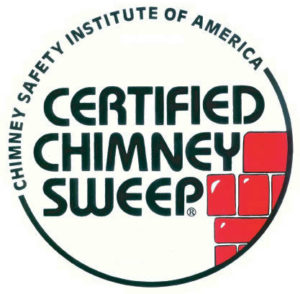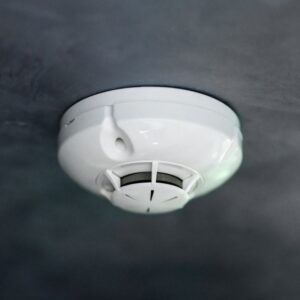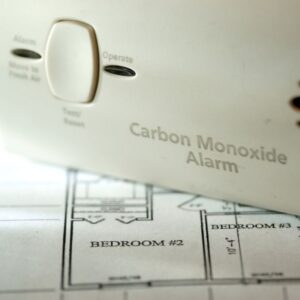URGENT!
Due to the weather, we are experiencing intermittent power outage and loss of internet. Please expect delays and or rescheduling of appointments during this time. We will reach out to you as soon as we can. Stay warm and stay safe!
With our busy season coming to a close, now is an ideal time to get your inspection, sweeping, or repair work scheduled. There are countless benefits to schedule chimney care this time of year, so get in touch Lords Chimney right away. We are always happy to help you out!

If you feel that free time is something that is hard to come by in your family, then you are not alone. We understand that your to-do list is long and many struggle when it comes to scheduling regular professional chimney care. Unfortunately, putting this maintenance on the back burner can lead to some serious risks.
That’s why we always aim to come at a time that is convenient for you, which is why we suggest getting your inspection in now while our schedule is more clear. This availability means you will have the freedom to schedule your appointment at a time that works well for you. No need to rearrange your hectic schedule! Just let us know what works, and we can schedule it.
Another big advantage of scheduling your chimney maintenance now is that we will be able to tackle any repairs right away. During the fall, repairs may need to be put on hold until our scheduled clears up. Throughout fall and early winter we stay very busy, so addressing repairs can take more time than usual, putting off your burn season. If we spot damages we can repair them now so you will be able to light up a fire early! While others are struggling to get maintenance completed, you will be ready to enjoy nights by a fire.
All in all, regular inspections are never something to put off, and now is an ideal time to get yours completed. Skipping this maintenance could land you in some trouble when the time comes to light a fire. Using a system that is damaged or clogged increase your chances of experiencing chimney fires, gas leaks, and house fires.
Along with this, a chimney that is well cared for will run more efficiently, guaranteeing you more heat and a more pleasant aesthetic, overall.
Guarantee yourself a safer and more comfortable home by getting the care you deserve right away. The team at Lords Chimney is experienced, CSIA certified, and eager to provide you with top-notch customer care. Schedule an appointment online today. We’ll be happy to help you out right away!
When it comes to hiring a chimney company, there are many questions you should ask yourself. For instance, how long have they been in business? Do they have any current references or reviews that you can look over? You may also want to look into any complaints they have received. In addition, check for liability insurance.
 All of these are important. However, a major thing that any good chimney company will have is certifications. If your technicians spent time and money obtaining certifications and going through the proper training, then they care about providing you the best service possible.
All of these are important. However, a major thing that any good chimney company will have is certifications. If your technicians spent time and money obtaining certifications and going through the proper training, then they care about providing you the best service possible.
One certification any chimney sweep would be proud to obtain is one granted by the Chimney Safety Institute of America (CSIA). The CSIA is highly esteemed in this industry. They hold the standard as far as what skills a chimney sweep should obtain.
The CSIA has been around since 1983, and has spent every year growing and training sweeps throughout the nation. They strive to make homes across America safer and love educating homeowners on how to keep their hearths in good health for decades. They also strive to remain ethical in everything they practice. Plus, want to protect fireplace owners from any potential scams.
The high standards maintained by the CSIA make these certifications highly desired by any company. Look for a CSIA certified sweep anytime you need an inspection, cleaning, repair, or more!
Remember, always look for specifics! If a company claims to be certified, but does not say by who or what in, then they are likely trying to pull the wool over your eyes. The word “certification” can be thrown around loosely at times. Consequently, unqualified companies often twist it around to make themselves sound more advanced than they really are.
Because of this, it is important to do your homework! Check for the CSIA logo with any company you hire. Also, be sure to double-check any suspicious-sounding certifications they claim to have. If someone claims to be CSIA certified but doesn’t seem to have the skills to back it up? Contact the CSIA and they will investigate the matter further!
At Lords Chimney, we hold certifications with the Chimney Safety Institute of America and the National Fireplace Institute. We also employ Certified Dryer Exhaust Technician sweeps, as well! We are members of the National Chimney Sweep Guild, and have been reviewed by multiple places, such as Angie’s List and The Better Business Bureau.
Visit our website today to learn more about our many services and qualifications. You can also contact us 281-497-4000 with any questions! To request an appointment, either fill out the form online or give us call. We look forward to working with you!
A deadly toxic gas that can enter your home if you have venting problems with your chimney or other heating unit, carbon monoxide is responsible for killing over 400 Americans by unintentional poisoning annually.
According to the Centers for Disease Control and Prevention (CDC), carbon monoxide poisoning also sends over 20,000 people to the emergency room, and more than 4,000 people end up having to be hospitalized due to carbon monoxide poisoning. This is why it’s very important to have your chimney inspected annually to ensure your chimney system is venting properly.
Our Chimney Safety Institute of America-certified technicians, who are experienced with solving carbon monoxide issues, would like to tell you more about this toxic gas that can silently enter your home and cause serious health damage…
 Carbon monoxide is a colorless, odorless, tasteless, and extremely toxic gas that is produced by burning fuels. Carbon monoxide is often called the “silent killer” because due to its properties, it is impossible to detect without specific equipment.
Carbon monoxide is a colorless, odorless, tasteless, and extremely toxic gas that is produced by burning fuels. Carbon monoxide is often called the “silent killer” because due to its properties, it is impossible to detect without specific equipment.
Carbon monoxide is produced by the incomplete combustion of fuels, including the wood, natural gas, or propane you use to heat your home. Depending on the type of heating appliance you have, your appliance may either burn hot enough to combust all traceable levels of carbon monoxide, or it will be vented out of your home through a chimney or ventilation system. If a ventilation system becomes blocked, such as from soot, debris, or nesting animals, carbon monoxide can be forced back into your home rather than exiting through the chimney or ductwork. A malfunctioning appliance also can cause a carbon monoxide hazard.
Its many sources include burning coal, wood, charcoal, oil, natural gas, kerosene, and propane. This means that most fireplaces, stoves, grills, space heaters, water heaters, furnaces, and even vehicles produce carbon monoxide gas. However, these appliances are normally either properly vented or located outdoors so they pose little to no risk to homeowners and their families.
Headache, dizziness, nausea, vomiting, weakness, chest pain, and confusion are all symptoms of low-level carbon monoxide poisoning. Since these symptoms are so similar to the flu or the common cold, carbon monoxide poisoning can be difficult to diagnose.
If you believe that you are experiencing the symptoms of carbon monoxide poisoning, immediately move to a fresh air location. Ideally this is outside, but can also be next to an open door or window. Call Poison Control and local emergency services before reentering the building.
If you persist in having these symptoms, ask your doctor for a carbon monoxide level blood test. High-level symptoms include organ damage, loss of consciousness, and death.
For some reason, your red blood cells would rather pick up carbon monoxide than oxygen. If there is a lot of carbon monoxide in the air, your body may replace all of the oxygen in your blood with carbon monoxide, blocking oxygen from entering your body, causing tissue damage and resulting, possibly, in death. Tissues can also be destroyed by carbon monoxide teaming up with the proteins in tissues.
 Have your fireplace and chimney cleaned and inspected by a reputable chimney company like Lords Chimney every year.
Have your fireplace and chimney cleaned and inspected by a reputable chimney company like Lords Chimney every year.Firstly, never burn anything in a fireplace that is not vented. Secondly, never patch a vent pipe with tape, gum, or anything else, which could cause carbon monoxide to build up more quickly. Thirdly, your indoor vent pipes should go up slightly as they go towards the outside. This helps prevent toxic gases from leaking if the joints or pipes are not fitted properly.
If you have any more questions about carbon monoxide, contact us today. Our experienced staff can answer whatever else you need to know about the dangers of carbon monoxide poisoning.